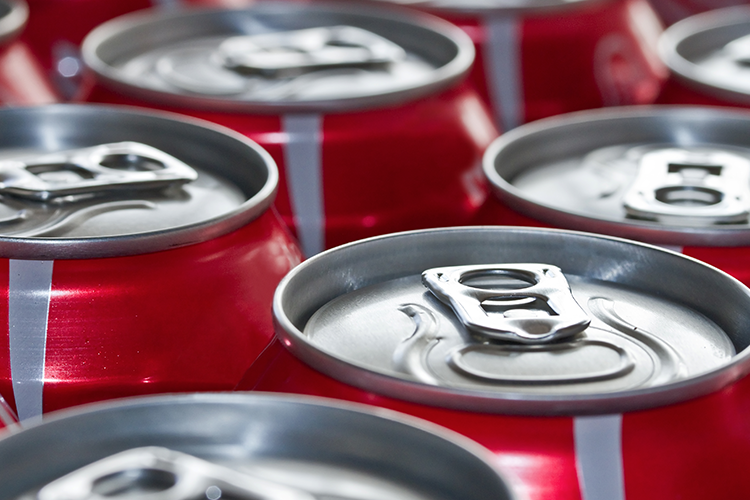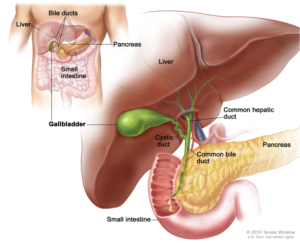Blog
Soft drinks and gallbladder cancer
 Need another reason to cut the cool-drink? Increasing your risk of cancer may be enough to tip you into saying no to that next can of Coke.
Need another reason to cut the cool-drink? Increasing your risk of cancer may be enough to tip you into saying no to that next can of Coke.
Research has found a significant increase in risk for developing cancer of the gallbladder in those consuming sugar-sweetened beverages.
The gallbladder acts as a storage sack for bile pumped out by the liver. When food with fats is consumed, the gallbladder contracts, sending the stored bile through ducts into the small intestine, where bile acts to break down the fats ready for absorption.

Cancer of the biliary tract, including the gallbladder, can occur in the gallbladder, in the ducts inside and outside the liver, and in the bile duct to the small intestine.
The study
Researchers at the Karolinska Institutet in Sweden analysed the dietary habits of 70,000 men and women. 13.4 years later, 127 of those were diagnosed with extrahepatic biliary tract cancer (BTC), including 71 with gallbladder cancer, and 21 with intrahepatic cancer.1
And the soft drinks included in the fray aren’t only sugar-sweetened, but also artificially sweetened too.
“After adjustment for other risk factors (such as age and overweight), women and men in the highest category of combined sugar-sweetened and artificially sweetened beverage consumption had a statistically significantly increased risk of extrahepatic BTC and gallbladder cancer,” the authors stated.
The major downside to the study is dietary intake was taken 13 years on average prior, and one can only ‘assume’ that dietary intake remained somewhat the same.
However, the link between high consumption (equating to 2 or more 200ml servings per day) of soft drink and extrahepatic biliary tree cancer and gallbladder cancer were both statistically significant, with 70% increased risk and twice the risk respectively, compared with non-soft-drink-drinking counterparts.
Sugar and the gallbladder
Gallstones and high sugar consumption have an established relationship. Higher sugar consumption can increase risk of gallstone formation.2
Anyone who has experienced the passing of gallstones knows that it ain’t fun!
Whilst incidence of gallbladder cancer is very rare, there is a strong relationship between gallbladder cancer and cholelithiasis (the presence of gallstones), and chronic inflammation of the gallbladder (cholecystitis).2
The study authors also note high soft drink and sugar consumption is associated with type 2 diabetes and overweight – and both of these conditions are implicated in the development of BCT.1
So whether the increased risk for cancer development is direct, or indirect via obesity, type 2 diabetes and gallstone development, is yet to be ascertained.
Perhaps excess refined sugar intake may play multiple roles in increasing gallbladder cancer risk?
If you have concerns about gallstones or the health of your gallbladder, please see your local healthcare practitioner to work with you on an individualised treatment plan. The thing is with gallstones there are sometimes no symptoms, and there are other risk factors* to consider aside from excess sugar consumption.
So, rethink your drink! Want something to replace the fizzy? Grab some tap, soda or sparkling water and squeeze in some lemon or lime juice, add a few berries or slices of apple, or pop in some fresh herbs like mint and basil. Your gallbladder will thank you!
By Angela Johnson (BHSC Nut. Med.)
*Other risk factors for gallstone formation can include:
- being overweight
- having uncontrolled blood glucose or Type 2 diabetes
- a family history
- a diet low in fibre and vegetables
- having rapidly lost weight or fasted
- are chronically constipated
- having higher levels of oestrogen.
Additionally, for women between 40 and 60 years the risk doubles compared to men at the same age, with increased chance of gallstone formation in those ‘female, fat, fair and forty’.3
References
- Larsson, SC, Giovannucci, EL, & Wolk, A 2016, ‘Sweetened Beverage Consumption and Risk of Biliary Tract and Gallbladder Cancer in a Prospective Study’, Journal Of The National Cancer Institute, vol. 108, no. 10.
- University of Maryland Medical Centre 2012, ‘Gallstones and gallbladder disease’, viewed 9 August 2016, <http://umm.edu/health/medical/reports/articles/gallstones-and-gallbladder-disease>
- Greenberger, NJ & Paumgartner 2008, ‘Diseases of the Gallbladder and Bile Ducts’, in A Fauci, E Braunwald, D Kasper, S Hauser, D Longo, J Jameson & J Loscalso (eds), Harrison’s Principles of Internal Medicine, 17th edn, McGraw Hill Medical, Sydney.











